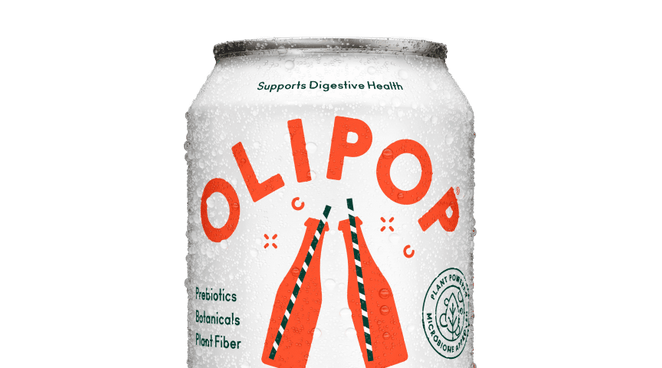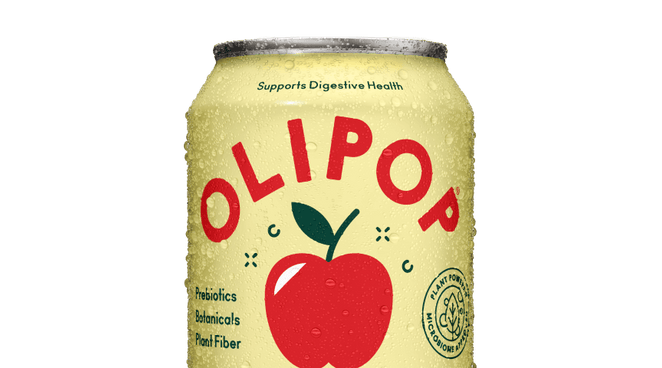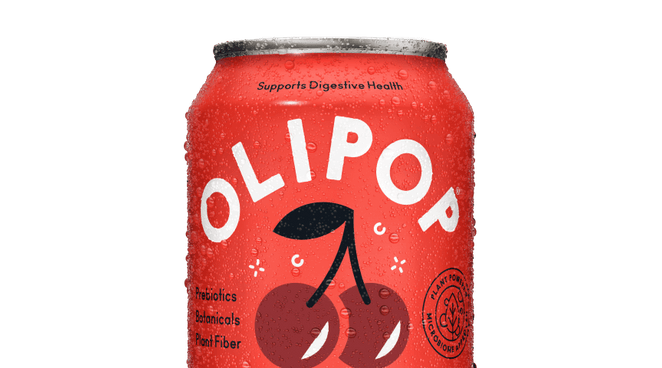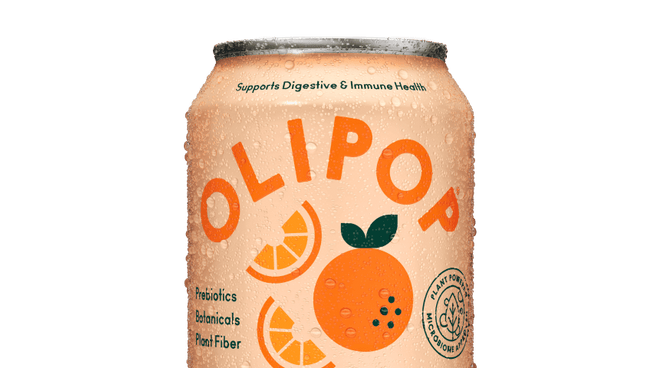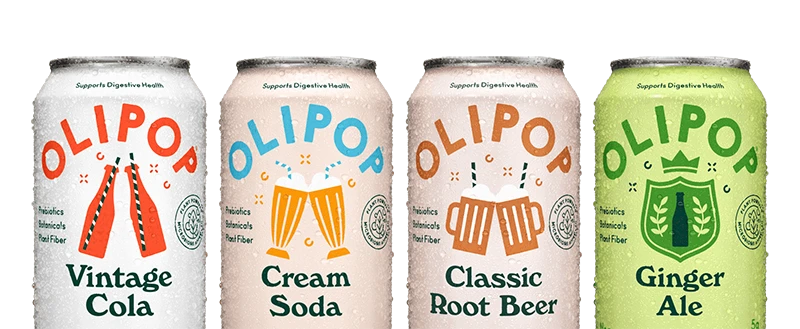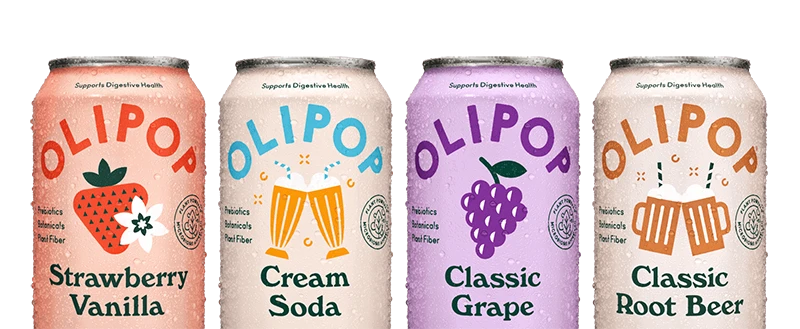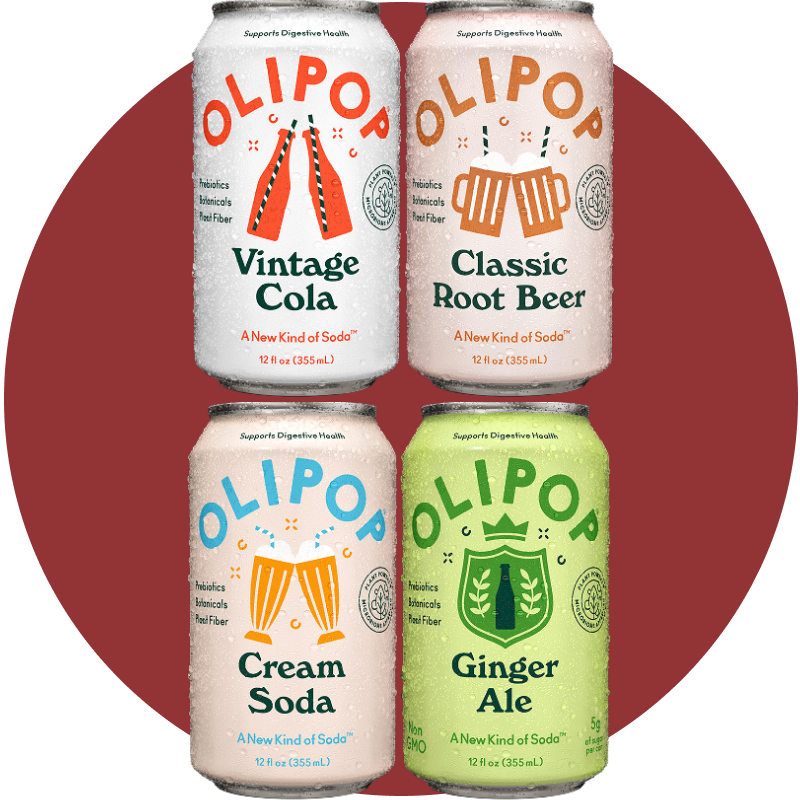Editor's Note: This article is written by Dr. Renee Korczak Ph.D., RDN, CSSD, LD. who is a paid member of the OLIPOP team. She specializes in digestive health and helps review OLIPOP content for scientific accuracy.
As a registered dietitian nutritionist (RDN), I think about the gut a lot. But why does gut health matter, and why do we keep talking about it at OLIPOP? Well, your gut is pretty crucial for keeping you and your body healthy and happy. Join me as I dive into why that is exactly, and some crucial steps you can take to keep your gut in tip-top shape.
The Importance of Gut Health
As an RDN, I think about the gut as a “silent” organ. It’s easy to forget about it! But the reality is that your gut is action-packed — it works hard each day to perform essential tasks that keep you moving, such as the digestion and absorption of nutrients.
Beyond digestion and absorption, the gut is also home to many microbial cells, the bulk of which exist as bacteria. [1] Other microorganisms including fungi and viruses also exist in the gut — but don’t worry, that is completely normal. The collection of these microorganisms is called the “microbiota”. This is not to be confused with the term “microbiome” which refers to the collection of genetic material found within these microorganisms. [1]
The human microbiome is unique from person to person. No two are the same! Through the years, scientists have made some pretty cool scientific advancements to try to better understand the human microbiome and how it relates to what we eat, as well as other lifestyle factors such as exercise, interaction with the environment, and so on. [2]
Although we need a lot more research to unearth all the hidden secrets of the microbiome, the big takeaway is this: your gut is pretty dang important. And those lifestyle factors like exercise and diet play a pretty big role.
Is My Gut Healthy? 4 Crucial Steps You Can Take to Support Gut Health
Without going into too much scientific detail, here are a few fun facts and key takeaways from some of these scientific studies on how changes you make in your diet and lifestyle can impact your gut.
1. Eat More Plants
We talk a lot at OLIPOP about the role of plants in your diet and how good they can be for the diversity of your gut bacteria. If you read our recent post on 5 Dietitian-Approved Tips for Better Gut Health in 2024, then you’ll know that the American Gut Project discovered that people who ate 30 — yes I said 30! — different types of plants per week versus those with 10 or fewer plants per week had a greater gut bacterial diversity. [3] What does this mean? Generally speaking, a greater gut bacterial diversity sets the stage for better gut health. Altogether… fascinating!
2. Challenge Your Diet Diversity
On a practical level, alternating the types of plants you eat each week can be challenging because many of us are creatures of habit. We often buy the same types of fruits and veggies we're accustomed to. But I challenge you to start by incorporating one new fruit into your diet today, as well as one new vegetable. If you embrace that healthy behavior daily, you will have no problem hitting 30 different plants per week on top of what you’re already consuming.
3. Add More Fiber
It’s also important to choose foods that contain a variety of fibers including fruits, vegetables, whole grains, and legumes. And don’t forget about prebiotics! Incorporating prebiotic fiber regularly into your diet is a great nutrition strategy that can help nourish the bacteria in your gut. Enter OLIPOP….
4. Embrace Regular Physical Activity
Embracing regular physical activity is a no-brainer for both your gut and overall health. The gut is often called an “athletic organ” because specific gut microbiota can support exercise performance by producing beneficial metabolites that your body can use for energy. And who doesn’t want more energy both during and after exercising?
But you don’t need to become a serious athlete to reap the benefits. Some research shows that even low-to-moderate exercise can help promote greater microbial diversity and help increase the ratio of good bacteria. [4] [5] In fact, vigorous and prolonged exercise may have different effects on the gut. But we have more to learn from science about how to properly nourish the gut for endurance exercise.
The Importance of Gut Health: The Takeaway
So to summarize, your gut plays a huge role in digestion and absorption, and it’s important to take care of it. After all, it’s home to 70% to 80% of your immune cells and works to produce other beneficial bacteria and metabolites that the rest of your body can use. [6]
That’s why as an RDN, I’m constantly telling my clients that your day-to-day actions make a big difference to your gut. The choices you make, like loading up on gut-friendly foods, exercising regularly, and incorporating more diversity into your diet, help bolster your gut health. Take care of your gut and you might just find that your gut will love you right back.
Sources
- Ursell LK, Metcalf JL, Parfrey L, Knight R. Defining the Human Microbome. Nutr Rev. 2012;70 (S1):S38-S44.
- Gilbert J, et al. Current understanding of the human microbiome Nat Med 2018; 24(4): 392-400.
- McDonald D, et al. American Gut: An Open Platform for Citizen Science Microbiome Research. mSystems. 2018; 15(3): e00031-18. Doi: 10.1128/msystems.00031-18. https://ucsdnews.ucsd.edu/feature/what’s-in-your-gut.
- Hughes RL, Holscher HD. Fueling Gut Microbes: A Review of the Interaction between Diet, Exercise, and the Gut Microbiota in Athletes. Adv Nutr. 2021;12(6):2190-2215. doi:10.1093/advances/nmab077.
- Di Dio M, Calella P, Pelullo CP, et al. Effects of Probiotic Supplementation on Sports Performance and Performance-Related Features in Athletes: A Systematic Review. Int J Environ Res Public Health. 2023;20(3). doi:10.3390/ijerph20032226.
- Holscher H.D. Dietary fiber and prebiotics and the GI microbiota. Gut Microbes 2017; 8(2): 172-184.
- The gut plays a huge role in digestion and absorption. It’s also home to 70% to 80% of your immune cells and works to produce beneficial bacteria and metabolites.
- Lifestyle factors like exercise and diet play a pretty big role in the health of your gut.
- To help support your gut, RDN Renee suggests eating more plants and fiber, increasing your diet diversity, and embracing a regular exercise routine.



